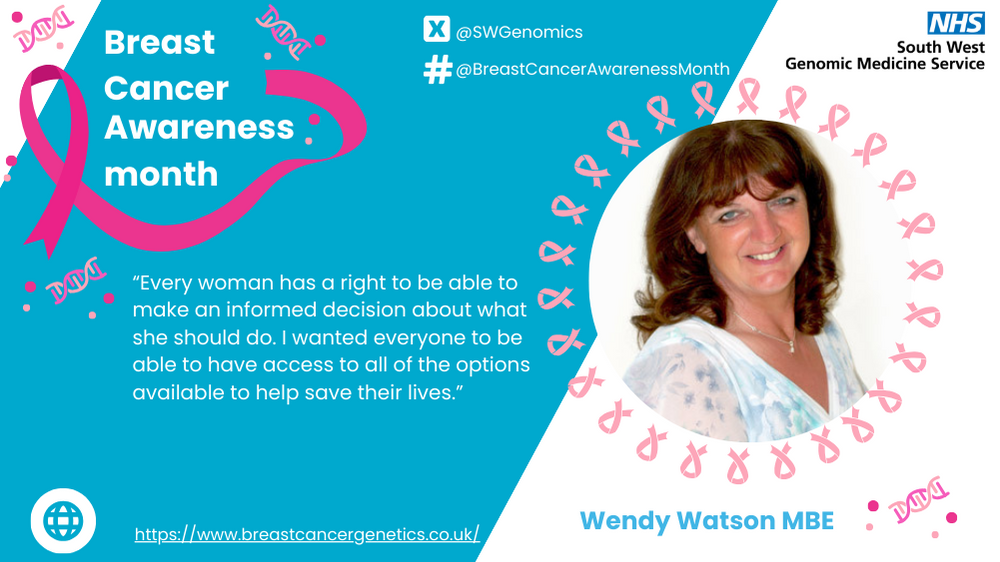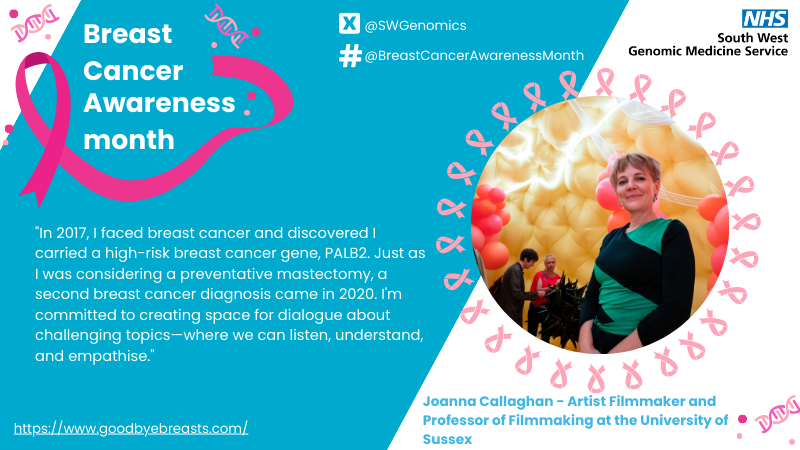Breast cancer and genomics
Did you know:*
- Each year in the UK, there are approximately 55,900 new cases of breast cancer*
- Most women diagnosed with breast cancer are over the age of 50, but younger women and men can also develop breast cancer*
- Breast cancer affects around 56,400 women and 390 men annually in the UK *
- Women with a BRCA1 or BRCA2 gene change have a 60-80% lifetime risk of developing breast cancer +
Genomics and breast cancer
Genomic testing is helping us learn more about the factors that influence cancer risk. These developments can help guide personalised care for cancer patients, and can help prevent cancer in family members. By understanding the genetic underpinnings of breast cancer, we're taking a significant step forward in the battle against this disease.
* based on a graphic by Cancer Research UK
+ Drawn from CGG guidance 2023
What are the genetic changes involved in breast cancer risk?
Changes in certain genes can significantly increase the risk of someone developing breast cancer. This includes genes such as BRCA1 and BRCA2, as well as other, more recently discovered breast cancer genes. The best-known breast cancer genes are BRCA1 and BRCA2 but there are actually a number of genes that can influence breast cancer risk. NHS testing now includes a panel of seven genes.
Gene changes are most likely to be present in people with a strong family history of breast (and ovarian) cancers. Families with a high-risk gene can access testing, extra screening, and other risk reducing measures. This is why genetic testing and counselling are so important.
Where can I find out more?
There are lots of useful websites and organisations dedicated to raising awareness of hereditary breast cancer. Find out more by visiting:
Genomics and the Royal Devon
As a research-active Trust, one of our Core Objectives is excellence and innovation in patient care - we will embrace new technologies, research and innovation and ways of working to deliver the best possible care and to enable people to stay well. We are proud to be part of the South West Genomic Medicine Service Alliance, the South West Genomics Laboratory Hub and home to the Exeter Genome service at the RILD (in partnership with the University of Exeter Medical School).
Information for healthcare professionals
Are you a healthcare professional supporting people with a diagnosis of breast cancer that might have implications for other members of their family?
There are lots of tools and resources available to help:
- NHS England Genomics Education
- Macmillan Cancer Support - 10 Top Tips: Genomics and Cancer



